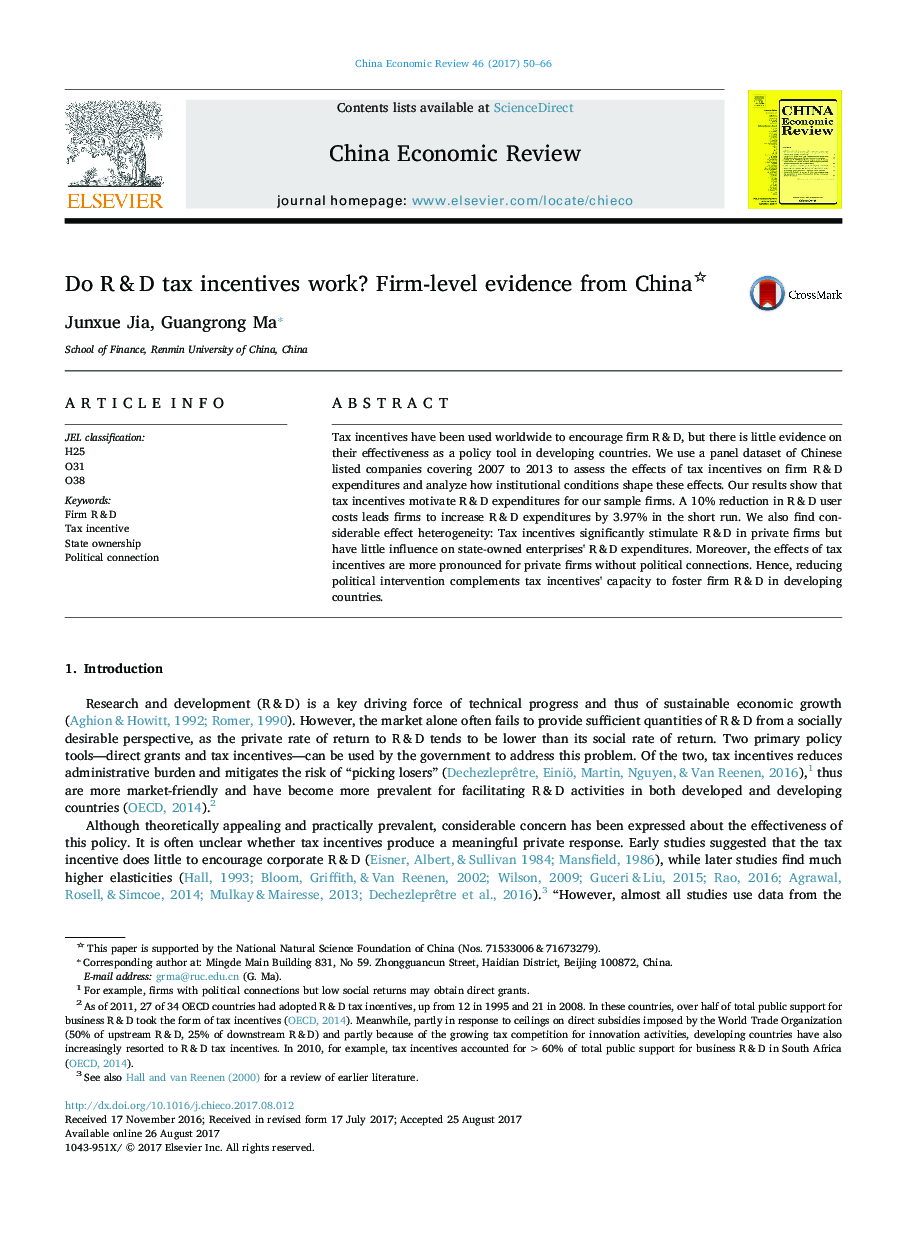| کد مقاله | کد نشریه | سال انتشار | مقاله انگلیسی | نسخه تمام متن |
|---|---|---|---|---|
| 5047157 | 1476254 | 2017 | 17 صفحه PDF | دانلود رایگان |
- We use a dataset of Chinese firms to assess the effects of tax incentives on R&D expenditures.
- We find that tax incentives motivate R&D expenditures for our sample firms.
- Tax incentives significantly stimulate R&D of private firms but not SOEs.
- The effects of tax incentives are more pronounced for private firms without political connections.
Tax incentives have been used worldwide to encourage firm R&D, but there is little evidence on their effectiveness as a policy tool in developing countries. We use a panel dataset of Chinese listed companies covering 2007 to 2013 to assess the effects of tax incentives on firm R&D expenditures and analyze how institutional conditions shape these effects. Our results show that tax incentives motivate R&D expenditures for our sample firms. A 10% reduction in R&D user costs leads firms to increase R&D expenditures by 3.97% in the short run. We also find considerable effect heterogeneity: Tax incentives significantly stimulate R&D in private firms but have little influence on state-owned enterprises' R&D expenditures. Moreover, the effects of tax incentives are more pronounced for private firms without political connections. Hence, reducing political intervention complements tax incentives' capacity to foster firm R&D in developing countries.
Journal: China Economic Review - Volume 46, December 2017, Pages 50-66
